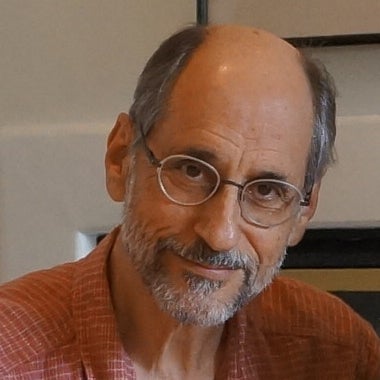Politics
Politics Emeriti Faculty
Oberlin College recognizes its faculty members with emeritus status who have provided distinguished service to their academic department during their tenure.
The following professors from the Department of Politics have retired from Oberlin College. They remain engaged members of our politics community.
- Chris Howell
Biography
Teaching Interests: Comparative Political Economy, Welfare State, Comparative Politics, West European Politics, Trade Unions and Industrial Relations, Socialism, Left Politics and Parties.
Research Interests: Comparative Political Economy of Advanced Capitalist Societies, Trade Unions and Industrial Relations, Social Democratic, Labor and Left Parties.
- Paul Dawson
Biography
Professor of Politics Paul Dawson received a BA, MA, and PhD in political science from Michigan State University. His chief interest is in policy analysis, focusing on how leaders accumulate the “political capital” to be effective, and how students can learn to become such leaders. He has published a textbook on American politics and policy.
He taught a First-Year Seminar on political leadership and various courses on American government especially public policy, electioneering, and the presidency.
He received a Distinguished Teaching Award from Oberlin College in 2005.
- Harry Hirsch
Biography
Professor of Politics, Professor Hirsch earned his AB at the University of Michigan and his MA and PhD at Princeton University. His specialties are constitutional law and jurisprudence, gender and sexuality, and modern political theory. He has published several books and numerous articles on constitutional theory and practice, gay rights and politics, and the First Amendment. He teaches courses on constitutional law, gay and gender politics, and American political thought. During 2005-06 he also served as Dean of the Faculty.
- Ronald Kahn
- Sonia Kruks
Biography
I taught Political Theory from 1990 until my retirement from the Department in 2019. My teaching included the History of European Political Theory, Contemporary Continental Political Theory, and Feminist Theory, as well as topical classes on theories of power and democracy. My research has long explored the social and political aspects of francophone existentialist thinkers, including Merleau-Ponty, Sartre, Marcel, Fanon, and Simone de Beauvoir. My more recent work focuses on the intersections of existentialism with feminist theory, especially through the work of Simone de Beauvoir. Books include: Simone de Beauvoir and the Politics of Ambiguity (Oxford); Retrieving Experience: Subjectivity and Recognition in Feminist Politics (Cornell); Situation and Human Existence: Freedom, Subjectivity and Society (Routledge); and The Political Philosophy of Merleau-Ponty (Routledge). Since retirement I continue to explore the work of Simone de Beauvoir, but now with a focus on her many writings about old age. My recent publications include “Alterity and Intersectionality: Reflections on Old Age in the Time of COVD-19, Hypatia: A Journal of Feminist Philosophy, vol. 37, 2022 and “Old Age and the Question of Authenticity,” in Beauvoir and Politics: A Toolkit, ed. L. Schoonheim and K.Vintges. (London: Routledge, 2024). I serve on the Advisory Board of Simone de Beauvoir Studies and the Editorial Board of Sartre Studies: An International Journal of Existentialism and Contemporary Culture.
- Ben Schiff
Biography
 Benjamin N. (Ben) Schiff (he/him)
Benjamin N. (Ben) Schiff (he/him)
James Monroe Professor Emeritus of Politics and International Law.B.A. (1973) Michigan State University, political science
MA (1975) and PhD (1982) University of California, Berkeley, political scienceFrom 1979 to 2016 he taught Introduction to International Politics and other courses including Middle East Politics; North-South Relations; International Organization; War, Weapons, and Arms Control; International Law; Israel-Palestine Conflict Colloquium, and advanced seminars on the arms trade, on the international refugee problem, on transition in South Africa, and on international criminal law.
He wrote three books on international organizations: International Nuclear Technology Transfer: Dilemmas of Dissemination and Control (Rowman and Alanheld, 1982), about the International Atomic Energy Agency; Refugees unto the Third Generation: UN Aid to Palestinians (Syracuse University Press, 1995) about the UN Relief and Works Agency. His book Building the International Criminal Court (Cambridge University Press, 2008) won the International Studies Association’s Chadwick Alger Award in 2009 and the Academic Council on the UN System’s Best Book of 2009 award.
With his wife, former foreign correspondent for the Christian Science Monitor, June Goodwin, he wrote Heart of Whiteness: Afrikaners Face Black Rule in the New South Africa (Scribner, 1995) and two mass-market paperback thrillers under the pseudonym J.G. Maxon Progeny (Pocketbooks, 1989) and Lethal Delivery (Pocketbooks, 1991).
He now resides in Oakland, California, where he obsesses on current events, makes furniture and other sundry items in his garage woodworking shop, and is highly entertained by his small but rapidly growing granddaughter. - Harlan Wilson